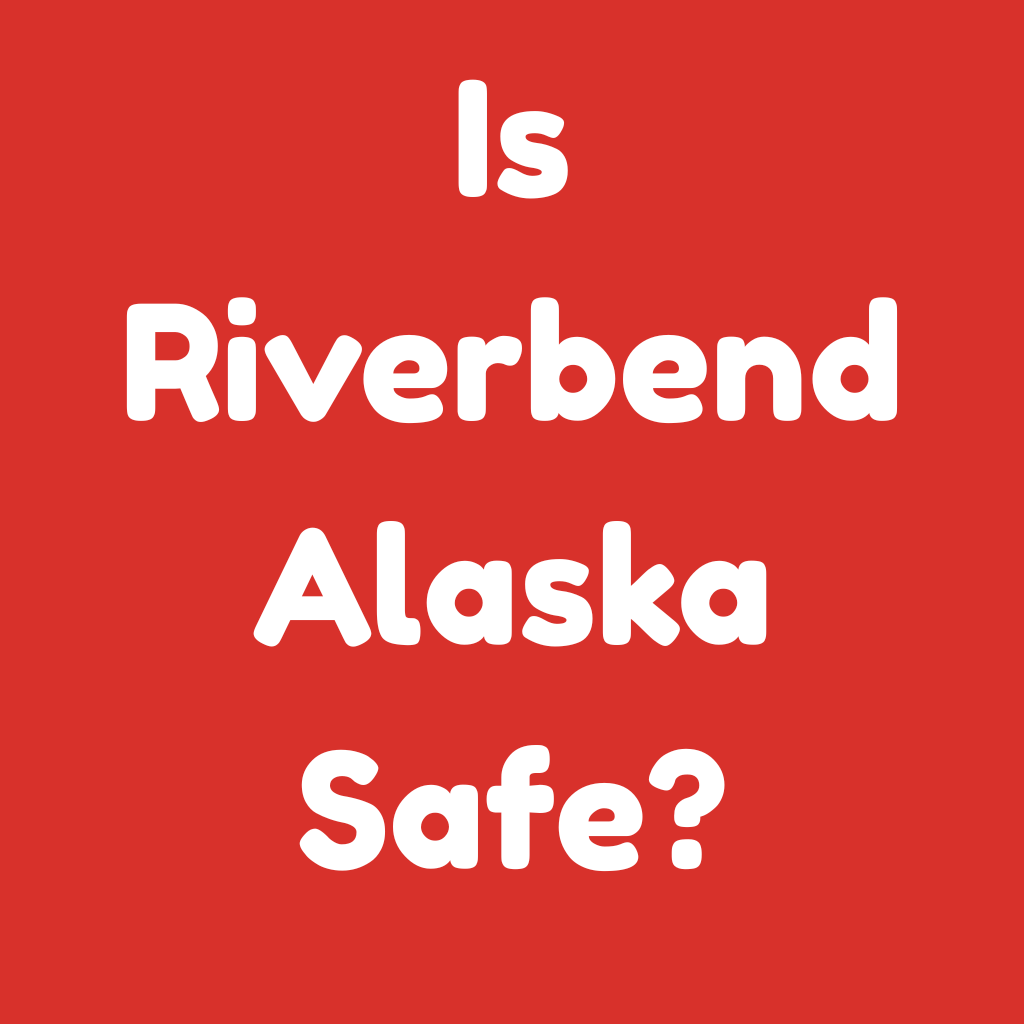Is Riverbend Alaska Safe?
When it comes to picking a destination to visit or even considering relocation, one of the first questions you probably ask is: “Is it safe?” And, for good reason.
Safety is a crucial factor in ensuring you can enjoy your time or live peacefully without concerns about crime or natural hazards. Riverbend, Alaska, might not be on the tip of everyone’s tongue when discussing popular Alaskan destinations, but it is a hidden gem with its unique charm.
However, with remote areas, sparse population, and wild natural surroundings, one might wonder, Is Riverbend, Alaska, really a safe place to live or visit?
In this post, we’ll explore the safety of Riverbend, Alaska, by considering a few key factors: crime rates, natural disasters, wildlife, and the general state of the area.
We’ll also cover some personal insights and give you a more nuanced understanding of what you might expect when you head to this scenic Alaskan town.
By the end, you’ll have a clear picture of whether or not Riverbend is a safe choice for your next adventure or long-term stay.
Crime Rates in Riverbend
Crime Statistics
One of the first things people usually look at when assessing safety is the local crime rate. Riverbend, Alaska, with its small population, doesn’t have the same crime concerns you might find in larger cities.
In fact, many residents and visitors describe Riverbend as a relatively peaceful community with low crime rates. However, like any place, it’s not immune to occasional incidents.
Crime Rate Table for Riverbend, Alaska
| Crime Type | Frequency (per 1,000 people) | State Average (per 1,000 people) |
| Violent Crime | 0.3 | 2.1 |
| Property Crime | 4.1 | 27.5 |
| Burglary | 0.6 | 3.3 |
| Larceny/Theft | 3.2 | 16.2 |
As you can see, violent crime is relatively rare in Riverbend, and property crime, while higher than violent crime, is still significantly lower than the state average.
One thing to note is that Riverbend’s small population means that any crime, even a single incident, can stand out more than in larger cities.
Crime Prevention
Despite the low crime rate, it’s still wise to take common-sense precautions. Like anywhere in Alaska, leave your car locked and secure, and keep an eye out for your surroundings when hiking or exploring.
It’s also worth mentioning that the local community in Riverbend is tight-knit, and residents often look out for one another.
Natural Hazards and Weather
Weather in Riverbend
Alaska is famous for its rugged, unpredictable weather, and Riverbend is no exception. Winters are cold, with temperatures often dipping below freezing, sometimes even reaching -30°F or lower. Snow and ice are common, making roads slick and hazardous. The short summer months are much milder, but the weather can still change rapidly, so preparedness is key.
Natural Disasters
While Riverbend is not located in an area known for frequent large-scale natural disasters, residents still face some weather-related risks:
- Avalanches: Due to its mountainous surroundings, there’s always the risk of avalanches in the winter. However, since Riverbend is a small community with limited access to steep terrain, this risk is somewhat minimized for casual visitors.
- Wildfires: Wildfires can occur in Alaska, especially in dry summer months. Residents need to stay aware of fire bans and warnings, but Riverbend’s location near the river provides some natural protection from wildfires.
- Flooding: The Chena River is prone to seasonal flooding, particularly in the spring when the ice melts. However, Riverbend is situated in a relatively safe zone with flood barriers in place to minimize damage to homes and property.
Tips for Dealing with the Alaskan Climate
- Dress in layers: Extreme cold temperatures in winter require proper clothing, such as insulated boots, gloves, and a warm jacket.
- Drive cautiously: In winter, icy roads are a concern, so always check road conditions before heading out.
- Stay informed: During flood season or in times of extreme weather, keep up with local news and emergency alerts.
Wildlife and Animal Encounters
Wild Animals in Riverbend
Alaska is home to some of the most majestic and dangerous wildlife on Earth, and Riverbend is no exception.
Bears, moose, and wolves can be spotted in the wild, particularly in the nearby forested areas.
While these animals rarely pose a direct threat to humans, their sheer size and strength mean that caution is always necessary when exploring the outdoors.
- Bears: Both grizzly and black bears are common in Alaska. It’s important to carry bear spray when hiking and to make noise to avoid surprising them.
- Moose: Although moose are generally peaceful, they can become aggressive if they feel threatened, especially during mating season or if they have calves nearby.
- Wolves: Wolves are more elusive, but they can occasionally be seen roaming the forests. They typically avoid human interaction but should still be respected.
Wildlife Safety Tips
- Carry bear spray: It’s a must-have if you’re venturing into the wilderness.
- Make noise: In areas known for wildlife, making noise can prevent surprising an animal and triggering an aggressive response.
- Stay calm: If you encounter a wild animal, don’t run. Back away slowly and make your presence known.
Local Safety Infrastructure
Emergency Services in Riverbend
Due to Riverbend’s remote location, emergency services can be limited, though they are responsive.
There is a small clinic in town for basic medical needs, but for more serious injuries or emergencies, residents typically need to be airlifted to the nearest hospital in Fairbanks, about 20 miles away.
There is also a volunteer fire department in the area that can respond quickly in case of a fire or other emergencies.
Tips for Emergency Preparedness
- Know the route to Fairbanks: Always have a clear plan in case you need to get to a hospital quickly.
- Emergency contacts: Keep local emergency contacts saved, and have a cell phone with you at all times.
Personal Insights and Local Perception
Having spent time in and around Riverbend, I can confidently say that the area is generally very safe, but it does require a mindset of preparedness, especially given the challenges posed by weather and wildlife.
Locals are extremely friendly and helpful, and they tend to look out for one another, making the community feel more secure.
That said, the remoteness of Riverbend can also present challenges. For example, if you’re used to a city with 24/7 convenience, it might take some getting used to living in a place where you need to plan ahead for everything, including supplies and emergency services.
Conclusion: Is Riverbend, Alaska Safe?
In conclusion, Riverbend, Alaska, is generally a safe place to visit or live, as long as you’re prepared and aware of the unique challenges posed by its remote location.
Crime is low, and while natural hazards like severe weather and wildlife encounters exist, they are manageable with proper planning and precautions.
The community is close-knit, and there is a sense of security among the locals, which adds to the overall safety of the area.
If you’re thinking of visiting or moving to Riverbend, I’d say go for it but come prepared! Do your research, respect the wildlife, and be aware of the weather conditions. And always have a plan for emergencies.
Key Takeaways:
- Crime rates in Riverbend are low, with property crime being more prevalent than violent crime.
- Weather can be harsh, particularly in winter, so always check conditions and dress appropriately.
- Wildlife, including bears and moose, is common in the area, so take safety precautions when outdoors.
- Emergency services are limited, so be prepared with supplies and know your route to Fairbanks.
I’d love to hear about your experiences with Riverbend or if you have any questions about living or visiting there.
Feel free to drop a comment below or share this article with others who might be considering a trip to Alaska!
Frequently Asked Questions (FAQ)
Q1: What is the best time to visit Riverbend, Alaska?
A1: The best time to visit Riverbend is during the summer months (June to August) when the weather is milder and outdoor activities are most enjoyable. Winter is beautiful but cold, and many activities are restricted due to snow and ice.
Q2: How do I protect myself from wildlife in Riverbend?
A2: Carry bear spray, make noise when hiking, and avoid hiking alone, especially during dawn or dusk when wildlife is more active.
Q3: Are there good hiking trails near Riverbend?
A3: Yes, Riverbend offers some fantastic hiking opportunities with scenic views of the Chena River and surrounding mountains. However, make sure you’re prepared for challenging terrain, especially in the winter.
Q4: Is healthcare readily available in Riverbend?
A4: While Riverbend has a local clinic for basic needs, more serious medical care requires traveling to Fairbanks. Always keep emergency contacts and a plan for reaching the hospital.







